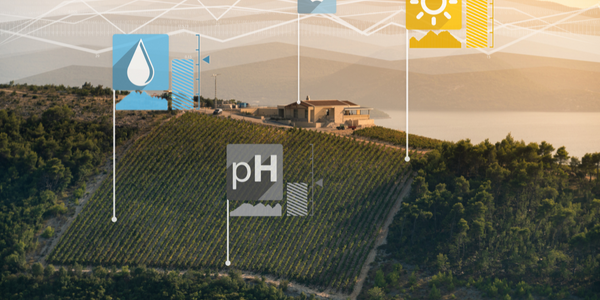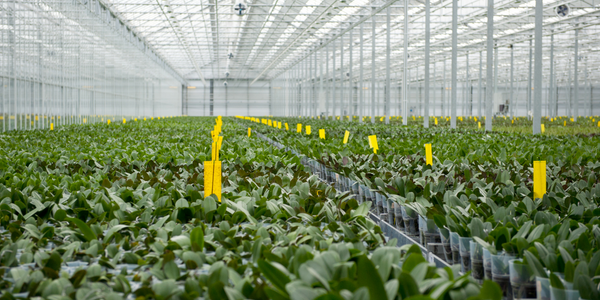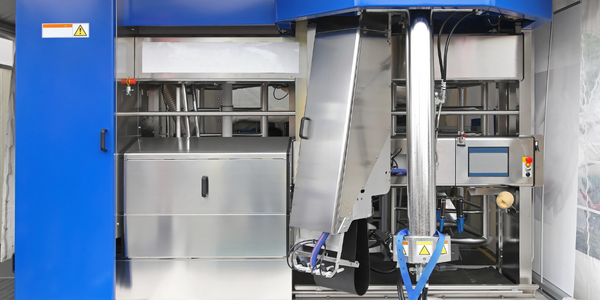Customer Company Size
Mid-size Company
Region
- America
Country
- United States
Product
- Acumatica
- Dynamics SL
- JAMS
- SpitFire
Tech Stack
- ERP
- Manufacturing Software
- Project Management Software
Implementation Scale
- Enterprise-wide Deployment
Impact Metrics
- Cost Savings
- Productivity Improvements
Technology Category
- Functional Applications - Enterprise Resource Planning Systems (ERP)
- Functional Applications - Manufacturing Execution Systems (MES)
Applicable Industries
- Agriculture
Applicable Functions
- Discrete Manufacturing
- Logistics & Transportation
Use Cases
- Manufacturing System Automation
- Inventory Management
Services
- System Integration
About The Customer
IMG Enterprises, Inc. is a diversified organization that began in 1979 as a small citrus operation in central Florida. The company has grown into a complex organization with nearly 400 full-time employees and annual revenues surpassing $60 million. The company's operations include citrus farming, ornamental tree farming, and landscape construction. IMG Enterprises' Director of Planning and IT, Jim Lieffort, explains that Cherry Lake Tree Farm has grown into one of the largest tree farms in the southeast U.S., offering “1,800 acres of ornamental trees, shrubs and palms in sizes ranging from small one-gallon up to 1,400-gallon pots.” In 2005, IMG Enterprises created a landscape construction division to further diversify their operations. LegacyScapes provides landscape and irrigation construction services to some of the most demanding and prestigious projects in Central Florida. Their clients include the major theme parks such as Walt Disney World, SeaWorld, and Universal as well as premium general contractors and developers.
The Challenge
IMG Enterprises, Inc. is a diversified organization with nearly 400 full-time employees and annual revenues surpassing $60 million. The company's operations include citrus farming, ornamental tree farming, and landscape construction. However, the complexity of IMG Enterprises’ operations led to a complicated IT situation. The company started using Solomon in the 1990’s and re-implemented Dynamics SL again in 2004. They also used 14 different programs in conjunction with SL, paying for maintenance on all of them. They wanted to bring in a manufacturing component, including work orders and material resource planning. However, they didn't feel there were many good manufacturing programs that worked with SL and could fulfill their needs.
The Solution
IMG Enterprises decided to purchase Acumatica on a perpetual license and activate the annual maintenance plan for ongoing support and services. They plan to host on-premise at first and later move hosting off-site. IMG Enterprises plans to use all of the available suites (Financial Management, Customer Management, Distribution Management, and Project Accounting), plus two add-on programs: JAMS for the manufacturing component and SpitFire, a project management software. With the help of Acumatica Partner SBS Group, the implementation is starting with Cherry Lake Tree Farm and LegacyScapes, and will be followed by IMG Citrus. They intend to complete the implementation of Acumatica at IMG Citrus in the fall of 2015. With Acumatica, Lieffort expects to go from 14 down to 4 programs.
Operational Impact
Quantitative Benefit

Case Study missing?
Start adding your own!
Register with your work email and create a new case study profile for your business.
Related Case Studies.

Case Study
Intelligent Farming with ThingWorx Analytics
Z Farms was facing three challenges: costly irrigation systems with water as a limited resource, narrow optimal ranges of soil moisture for growth with difficult maintenance and farm operators could not simply turn on irrigation systems like a faucet.

Case Study
Greenhouse Intelligent Monitoring and Control Solution
Farming Orchids is the most successful form of precision farming in Taiwan, and also the most exported flower. Orchids need a specific temperature and humidity conditions to grow and bloom, and its flowering time may not be in line with market demands, so the price collapses when there is overproduction. Therefore, some farmers began to import automated greenhouse control systems for breeding and forcing, which not only improves quality, but also effectively controls the production period and yield to ensure revenue. In 2012, an orchid farmer built a Forcing Greenhouse of about 200 pings (approximately 661 Square Meters) in Tainan, Taiwan. The system integrator adopted Advantech’s APAX-5000 series programmable automation controllers to build the control platform, coupled with Advantech WebAccess HMI/SCADA software, to achieve cloud monitoring. The staff of the orchid field can monitor important data anytime via smart phone, iPad, and other handheld devices, and control the growth and flowering conditions. System requirements: In the past, most environmental control systems of orchid greenhouses in Taiwan used PLCs (Programmable Logic Controller) with poorscalability and control, and could not be connected to the Internet formonitoring from the cloud. For advanced database analysis and networking capability, the PC platform must be adopted. Therefore, PAC Systems (Programmable Automation Controller) with both PLC programming capabilities andPC functions is a better choice.The environmental control of the Orchid greenhouse switches on and off devices like fan, shade net, cooling/heat pump, liquid flow control, water-cooling wall etc. It is controlled by a control panel of electric controllers, and is driven by a motor, to adjust the greenhouse temperature, humidity, and other environmental conditions to the set parameters.

Case Study
Precision beekeeping with wireless temperature monitoring
Honeybees are insects of large economic value and provide a vital service to agriculture by pollinating a variety of crops. In addition, bees provide us with valuable products such as honey, beeswax, propolis, bee venom, etc. Monitoring of honeybee colony health, population, productivity, and environmental conditions affecting the colony health have always been exceedingly difficult tasks in apiculture. Research has shown that even small deviations (by more than 2°C) from the optimal temperatures have a significant influence on the development of the brood and the health of adult bees.

Case Study
Enabling Internet of Things Innovation in Agriculture
DigiBale, wanted to apply technology know-how and IP from implementations successfully to more agriculture sectors including cotton, forestry, sugarcane and cattle. However, farmers and growers still have worries about the connected technology.









